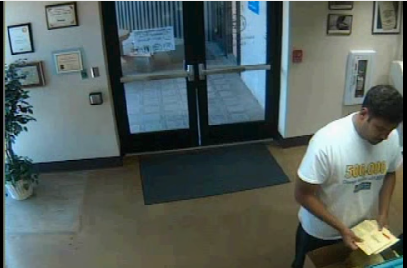A federal appeals court upheld Arizona’s new law against “ballot harvesting” late Friday, with the judges saying there was no proof it discriminates against minorities.
The law, which took effect in August, makes it a crime to take someone else’s ballot to the polls.
Judge Sandra Ikuta, writing for the divided three-judge panel of the 9th U.S. Circuit Court of Appeals, acknowledged there was evidence that the law could make it more difficult for residents of rural communities, particularly those with limited or no mail service, to vote. The same is true, she said, of voters who are elderly or homebound.
But Ikuta said there was “no evidence that these categories of voters were more likely to be minorities than non-minorities.”
That failure is significant: Federal courts can void state laws for violating the Voting Rights Act only if judges conclude that the statute has a disparate effect on minorities. Without that, Ikuta said, this challenge fails.
The majority ruling drew a stinging dissent from Chief Justice Sidney Thomas of the 9th Circuit.
“Arizona has criminalized one of the most popular and effective methods by which minority voters cast their ballots,” he wrote.
Thomas disputed Ikuta’s conclusions, saying he believes that the impact on minorities is enough to declare the law unconstitutional.
Friday’s ruling is not necessarily the last word.
All the decision did was deny a bid by challengers to bar the state from enforcing the new law at this election. It is now likely too late to pursue further appeals.
Technically speaking, foes can still pursue their arguments at a full-blown trial — months or years from now — that the law should be voided. But in denying the injunction, the 9th Circuit majority had to conclude that foes were unlikely to prevail in the long run.
The law approved earlier this year by the Republican-controlled Legislature is linked to the ability of anyone to request an early ballot in the mail. Until now, voters could mark it up and return it by mail, bring it in person to a polling place, or give it to someone else to drop off.
It now is a felony, punishable by a year in prison, for any person to collect the voted or unvoted ballot of anyone else. The only exceptions are for family members, those living in the same household, and certain caregivers.
Both parties have engaged in some form of ballot harvesting. But Democrats and their allied groups have been far more effective at going door-to-door to collect the early but unreturned ballots sent to voters.
Proponents of the new law argued that the ability of any person to handle another’s ballot provides an opportunity for fraud. Ikuta, in her 58-page opinion, said that concern is legitimate.
“A state indisputably has a compelling interest in preserving the integrity of its election process,” she wrote. While the best method of doing that may be debatable, “the propriety of doing so is perfectly clear,” she added.
That argument drew derision from Thomas.
“The sponsors of the legislation could not identify a single example of voter fraud caused by ballot collection,” he wrote in his own 29-page dissent. “Not one.”
Instead, Thomas said, the law was “based on the speculative theory that fraud could occur.” There was testimony, he said, showing that there are various safeguards in place to deal with potential problems, such as signs that someone may have tampered with someone else’s ballot.
“In short, the specter of voter fraud by ballot collection is much like the vaunted opening of Al Capone’s vault — there is simply nothing there,” he wrote.
Ikuta, however, said laws like this can strengthen public confidence in the integrity of the electoral process, which “encourages citizen participation in the democratic process.” There is no requirement for the state to wait for a problem to develop, she said.
“Legislatures are permitted to respond to potential deficiencies in the electoral process with foresight rather than reactivity,” Ikuta wrote.





